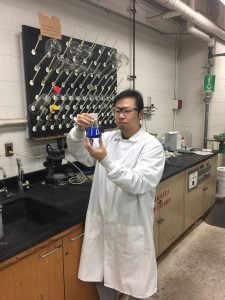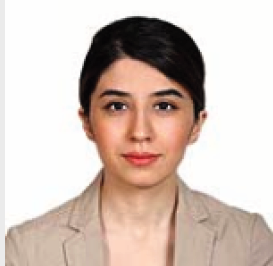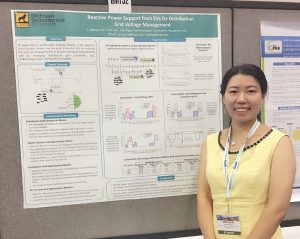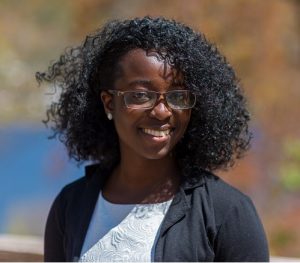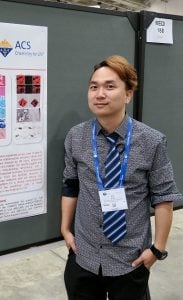Jinlin Zhang
Physics
 I am a PhD candidate working with Dr. Jae Yong Suh and Dr. Yoke Khin Yap in the Physics Department. I joined Michigan Tech in summer of 2015 after finishing my master’s degree from Lanzhou University, China. My research interests lie in linear and nonlinear optical properties of low dimensional materials including novel metallic films and transition metal dichalcogenides (TMDs), which are promising for applications in nanophotonic and nanoelectric devices. I do fabrication, characterization and simulation of these materials. I am also interested in building setups for detecting optical properties of materials. My long-term goal is to pursue an academic career in optical and materials physics, extending what I have learned from Michigan Tech. I am passionate about teaching as well and have more than three years of experience of PH1200 lab as an instructor in Michigan Tech.
I am a PhD candidate working with Dr. Jae Yong Suh and Dr. Yoke Khin Yap in the Physics Department. I joined Michigan Tech in summer of 2015 after finishing my master’s degree from Lanzhou University, China. My research interests lie in linear and nonlinear optical properties of low dimensional materials including novel metallic films and transition metal dichalcogenides (TMDs), which are promising for applications in nanophotonic and nanoelectric devices. I do fabrication, characterization and simulation of these materials. I am also interested in building setups for detecting optical properties of materials. My long-term goal is to pursue an academic career in optical and materials physics, extending what I have learned from Michigan Tech. I am passionate about teaching as well and have more than three years of experience of PH1200 lab as an instructor in Michigan Tech.
I would like to thank Graduate School for granting me the Finishing Fellowship. It allows me time to write my dissertation, defend my thesis and graduate with a doctoral degree. Meanwhile, I am thankful for Dr. Jae Yong Suh and Dr. Yoke Khin Yap for their guidance, and the group members who have helped me during research work as well. I am also grateful to the department chair, Ravindra Pandey, and the Physics Department for their support.

